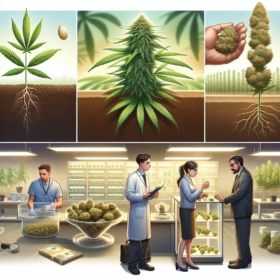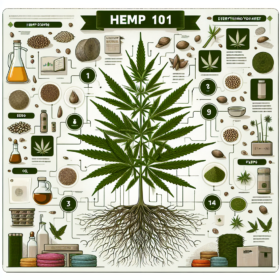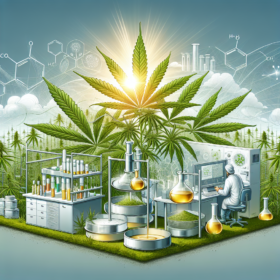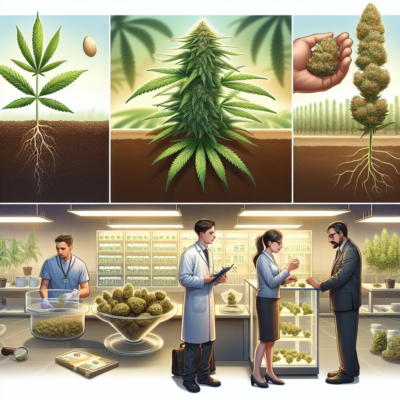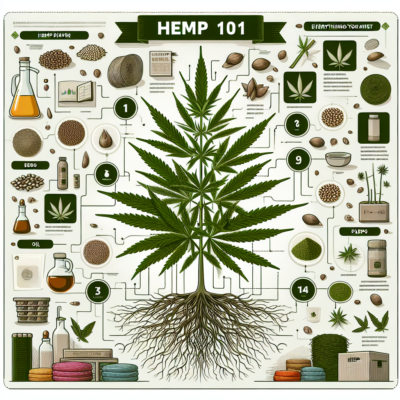The Comprehensive Importance of Cannabis
Introduction
Cannabis, commonly known as marijuana, has been a subject of debate and discussion for centuries. This versatile plant has played a significant role in various aspects of human life, ranging from cultural and medicinal to industrial and recreational. In this comprehensive article, we delve into the multifaceted importance of cannabis.
Historical Significance
The history of cannabis dates back thousands of years, with evidence of its use in ancient civilizations such as China, India, and Egypt. It has been valued for its medicinal properties, as well as its role in religious ceremonies and cultural practices. Cannabis has been documented as a source of fiber for textiles and ropes, demonstrating its importance in early human societies.
Medicinal Benefits
One of the most well-known aspects of cannabis is its medicinal potential. The plant contains over 100 different cannabinoids, each with unique effects on the human body. Cannabidiol (CBD) and tetrahydrocannabinol (THC) are two of the most studied cannabinoids. CBD has been found to have anti-inflammatory, analgesic, and anxiolytic properties, making it useful in the treatment of conditions such as chronic pain, anxiety disorders, and epilepsy. THC, on the other hand, is known for its psychoactive effects and has been used to alleviate symptoms associated with nausea, appetite loss, and certain types of pain.
In recent years, there has been a growing interest in the use of cannabis for medicinal purposes, leading to the legalization of medical marijuana in many jurisdictions around the world. Patients suffering from conditions such as cancer, multiple sclerosis, and HIV/AIDS have reported significant relief from symptoms after using cannabis-based medications.
Industrial Applications
Besides its medicinal properties, cannabis has a wide range of industrial applications. Hemp, a variety of the cannabis plant, is particularly valued for its fibrous stalks, which can be processed into various materials. Hemp fiber is strong and durable, making it suitable for the production of textiles, ropes, and paper. Additionally, hemp seeds are rich in protein and essential fatty acids, making them a valuable food source. Hemp oil extracted from the seeds is used in cooking, skincare products, and industrial lubricants.
Furthermore, hemp cultivation has environmental benefits. Hemp plants have a rapid growth rate and require less water and pesticides compared to other crops, making them a sustainable option for farmers. Hemp cultivation can also help improve soil health and reduce carbon dioxide levels in the atmosphere through carbon sequestration.
Social and Economic Impact
The legalization and regulation of cannabis have significant social and economic implications. In jurisdictions where cannabis has been legalized for recreational use, there has been a boom in the cannabis industry, creating jobs and generating tax revenue. Legalization also reduces the burden on the criminal justice system by eliminating arrests and convictions for cannabis-related offenses.
Furthermore, cannabis legalization can address social justice issues, particularly concerning racial disparities in drug law enforcement. In many cases, minority communities have been disproportionately affected by cannabis prohibition, leading to higher rates of arrest and incarceration. Legalization and regulation provide an opportunity to rectify these injustices and promote equity in the cannabis industry.
Recreational Use
Recreational cannabis use has been a controversial topic, with proponents arguing for its legalization and opponents expressing concerns about potential risks. While cannabis use can lead to intoxication and impairment, particularly when consumed in large quantities, many individuals use it responsibly and in moderation. Some people use cannabis recreationally to relax, enhance social interactions, or experience altered states of consciousness.
However, responsible consumption is crucial to minimize the potential negative effects of recreational cannabis use, such as impaired driving, cognitive impairment, and dependency. Education and public awareness campaigns play a vital role in promoting responsible use and reducing harm associated with cannabis consumption.
Challenges and Regulation
Despite its numerous benefits, cannabis legalization and regulation present challenges for policymakers and stakeholders. Concerns about youth access, impaired driving, and potential health risks require careful consideration in the development of cannabis policies. Additionally, the legal cannabis industry must contend with issues such as product safety, quality control, and taxation.
Regulatory frameworks vary widely across jurisdictions, with some countries opting for strict regulations and others adopting more liberal approaches. Finding the right balance between promoting public health and ensuring access to cannabis products is essential for the success of cannabis legalization efforts.
Conclusion
In conclusion, cannabis plays a crucial role in various aspects of human life, from its medicinal and industrial applications to its social and economic impact. As attitudes toward cannabis continue to evolve and scientific research advances, it is essential to recognize and appreciate the diverse benefits of this remarkable plant. By implementing responsible regulation and promoting education, society can harness the full potential of cannabis while minimizing potential risks and maximizing its benefits.







